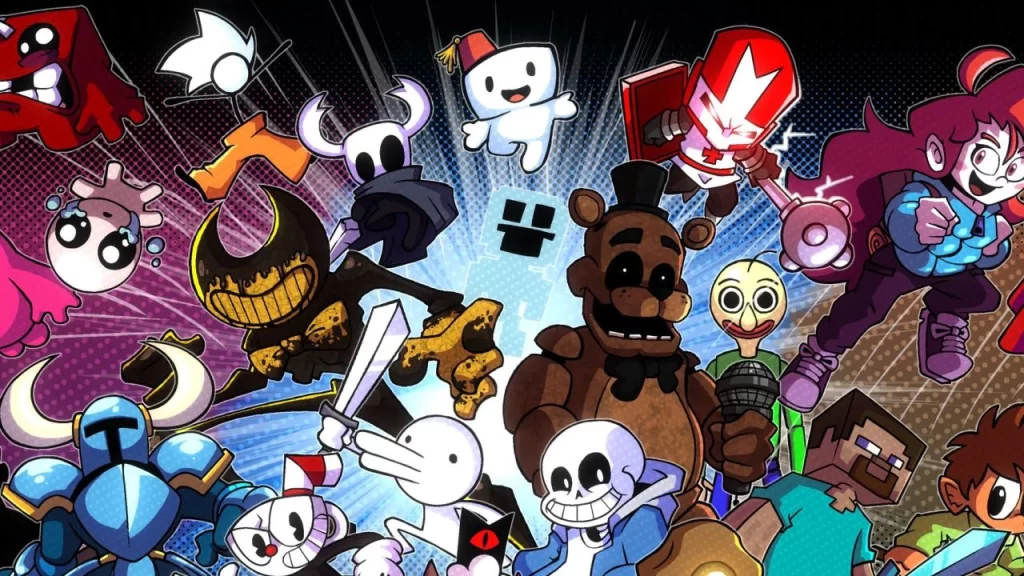Indie games emphasize personal, often poignant stories and gameplay experiences that resonate on a human level, setting them apart from the high-octane, graphically intense offerings of larger studios. This focus on niche markets and innovative ideas has allowed indie games to flourish in a market saturated with blockbuster titles, providing a refreshing alternative for gamers looking for something different.
Navigating through college assignments and exams can be as challenging as the most complex puzzle games. Just as indie developers often need to think outside the box to overcome resource limitations, students might find themselves seeking assistance to manage their academic workload.
Services that offer to write my nursing paper can be a lifeline, allowing students to focus on their studies while ensuring their assignments are completed to a high standard. In many ways, seeking academic help when needed can be seen as a smart strategy, akin to using game tutorials to get past a particularly tough level.
Source: https://unsplash.com/photos/black-sony-ps2-controller-on-white-surface-i1Q9pphrWUw
What Defines an Indie Game?
Indie games are primarily defined by their independence from the major developer studios that dominate the video game industry. This independence is not just a matter of budget but also creative control, which enables indie developers to explore and implement their unique visions without the constraints typically imposed by profit-driven publishers.
Creativity and Innovation
With fewer restrictions on content and style, indie developers often take creative risks that result in unique and memorable gaming experiences. Games like “Braid” or “Undertale” have left lasting impressions due to their innovative gameplay and storytelling techniques.
Are Indie Games Better Than Mainstream Titles?
The debate over whether indie games are better than their mainstream counterparts can be subjective and often boils down to personal preference. However, there are certain aspects where indie games frequently excel.
Focus on Narrative
Many indie games put a strong emphasis on narrative, offering deep storylines that are thought-provoking and emotionally engaging. This can be particularly appealing for players who are less interested in graphics and more in storytelling and character development.
Originality and Fresh Perspectives
Without the pressure to meet mainstream commercial expectations, indie games can introduce players to new concepts and perspectives. This freshness can make indie games particularly appealing to those looking for experiences that are not formulaic or predictable.
Practical Applications and Learning Experiences
The ingenuity found in indie games can be inspiring for students in various fields, not just those studying game design. For instance, the problem-solving and critical thinking skills honed by navigating complex game worlds can be directly applicable to academic challenges, such as needing help with a nursing assignment. Learning how to approach a problem from multiple angles can be invaluable in both realms.
Balancing Challenges and Resources
The development of indie games often mirrors the academic journey—both require balancing limited resources with the need to overcome significant challenges. For indie developers, this might mean finding innovative ways to maximize a small budget, while for students, it might involve juggling coursework, exams, and personal commitments.
Educational Value of Indie Games
Indie games are not just about entertainment; they often carry educational value, making them a tool for learning and personal development. Many indie games are designed around problem-solving, strategic thinking, and creative challenges, which can translate into real-world skills.
Learning Through Play
Games like “Kerbal Space Program” provide a fun and engaging way to learn about physics and aerospace engineering, while “Papers, Please” offers insights into the complexities of immigration and moral decision-making. For students, these games can supplement traditional learning by providing interactive experiences that reinforce theoretical concepts.
Indie Games and Mental Health
Another significant aspect of indie games is their potential impact on mental health. Many indie titles focus on themes like mindfulness, coping with anxiety, and emotional healing, using the game format to explore complex feelings and promote psychological well-being.
Therapeutic Benefits
Games like “Celeste” and “Night in the Woods” address themes of mental health through their narratives and gameplay mechanics, offering players ways to engage with their emotions positively. For students facing the stresses of academic life, these games can provide a welcome respite, allowing them to unwind and process their feelings in a supportive environment!
Challenges Facing Indie Developers
Without the substantial marketing budgets of larger studios, indie developers must be savvy in how they promote their games. Social media, gaming forums, and game expos are crucial for gaining visibility. Engaging with players directly through these channels can help build a dedicated following even before a game is released.
Financial Sustainability
Managing finances is a major hurdle for indie developers. Many rely on part-time jobs or freelance work to fund their projects. Crowdfunding can be a viable option, but it requires a strong pitch and the ability to maintain backers’ interest over time.
Final Thoughts
For students, indie games prove that with the right approach and enough determination, it is possible to create something truly remarkable, even without vast resources. Whether you’re a gamer or a student, the world of indie games has valuable lessons to offer about creativity, resourcefulness, and the importance of following one’s passion!
